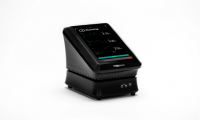-
MA Beneficiaries Have Lower Utilization Than Traditional Medicare
- Source: drugdu
- 373
- October 6, 2023
-
Can crafted meal plans in kindergarten lead to healthier kids?
- Source: drugdu
- 355
- October 4, 2023
-
FDA Authorizes Novavax’s Covid-19 Vax, Set to Join Fall Rollout of Updated Shots
- Source: drugdu
- 314
- October 4, 2023
-
Pharmacists can play key role in boosting HPV vaccination rates
- Source: drugdu
- 390
- October 4, 2023
-
FDA expands total product life cycle program to cover neurological devices
- Source: drugdu
- 424
- October 4, 2023
-
908 Devices Launches Real-Time Monitoring Platform For Multiple Bioprocess Parameters
- Source: drugdu
- 537
- October 4, 2023
-
Zocdoc Takes Aim At Phreesia, NexHealth With New Free Suite of Patient Engagement Tools
- Source: drugdu
- 510
- October 4, 2023
-
FDA clears Krystal Biotech’s IND for Type 1 AATD treatment KB408
- Source: drugdu
- 397
- October 4, 2023
-
ICR and Merck renew strategic alliance for development of new cancer drugs
- Source: drugdu
- 330
- October 4, 2023
-
Glenmark solves its ‘decade-long’ debt problem with $681M sale of API unit to Nirma
- Source: drugdu
- 467
- October 4, 2023
your submission has already been received.
OK
Subscribe
Please enter a valid Email address!
Submit
The most relevant industry news & insight will be sent to you every two weeks.

















